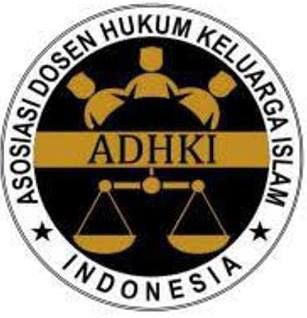Kesaksian Non Muslim Sebagai Alat Bukti Dalam Perkara Perceraian Menurut Hukum Islam (Studi Kasus di Pengadilan Agama Curup)
Abstract
Keywords
Full Text:
PDFReferences
Abdurrahman, Kompilasi Hukum Islam, Jakarta:Akademik Pressindo, 1995
Arto, Mukti, Praktek Peradilan Perdata Pada Pengadilan Agama, Yogyakarta: Pustaka Pelajar, 1996
Arikunto, Suharsimi, Prosedur Penelitian Suatu Pendekatan Praktik, Jakarta: Renika Cipta, 2006
AS Pelu, Ibnu Elmi dan Abdul. Helim, Konsep Kesaksian, Malang: Setara Press, 2015
Bintania, Aris, Hukum Acara Peradilan Agama dalam Kerangka Fiqih Al-Qadha, Jakarta : PT Raja Grafindo Persada, 2012
Burhan Bungin, Muhammad, Penelitian Kualitatif, Jakarta: Kencana, 2008
Departemen Agama RI, AL-Qur’an dan Terjemahnya, Semarang:PT Karya Toha Putra,1995
Depertemen Agama RI, Al-Qur`an dan Terjemahan, Bandung: CV Penerbit Diponegoro, 2003
Ghozali, Abdur Rahman, Fiqih Munakahat, Jakarta: Kencana, 2012
Harahap, Yahya, Hukum Acara Perdata, Jakarta: Sinar Grafika, 2005
J. Moeleong, Lexy, Metodelogi Penelitian Kualitatif, Bandung: Remaja Rosdakarya, 2008
Kartono, Kartini, Pengantar Metodelogi Riset Sosial, Bandung: Mandar, 1996
Lubis, Sulaikin, et al, Hukum Acara Perdata Peradilan Agama di Indonesia, Jakarta: Kencana, 2006
Mahmud, Metode Penelitian Pendidikan, Bandung: Pustaka Setia, 2011
Manan, Abdul, Penerapan Hukum Acara Perdata di Lingkungan Peradilan Agama, Jakarta: Kencana, 2005
Mardani, Hukum Acara Perdata Peradilan Agama dan Mahkamah Syar’iyah, Jakarta : Sinar Grafika, 2009
Nurddin, Amiur dan Azhari Akmal Tarigan, Hukum perdata Islam di Indonesia, Jakarta: Kencana, 2006
Rasyid, Roihan ,Hukum Acara Peradilan Agama,Jakarta: PT Raja Grapindo Persana, 2006
Rofiq Ahmad, Hukum Islam Di Indonesia, Jakarta: Raja Grafindo, 1995
Sabiq, Sayyid, fikih sunnah 12, Bandung : PT Alma’arif, 1987
Salam Madkur, Muhammad, Peradilan Dalam Islam, Surabaya: PT Bina Ilmu Offset, t.t
Samudra, Teguh, Hukum Pembuktian dalam Acara Pedata, Bandung: PT Alumni, 2004
Subekti & Tjitrosudibio, Kitab Undang-undang hukum Perdata, Jakarta: Pradnya Paramita, 2008, Cet. 39, h. 475.
Subekti, Hukum Pembuktian, Jakarta: Pradnya Paramita, 2010
Sudikno, Hukum Acara Perdata Indonesia, Yogyakarta : Liberty, 1977
Sugiyono, Metode Penelitian Kuantitatif Kualitatif dan R&D, Bandung: Alfabeta, 2014
Supramono, Gatot, Bagaimana Mendampingi Seseorang di Pengadilan (Dalam Perkara Pidana dan Perkara Perdata), Jakarta : Djambatan, 2008
Syarifuddin, Amir, Hukum Perkawinan Islam di Indonesia, Jakarta : Kencana, 2006
Taufik Makarao, Moh, Pokok-pokok Hukum Acara Perdata, Jakarta: Rineka Cipta, 2009
Tri Wahyudi, Abdullah, Peradilan Agama Di Indonesia, Yogyakarta : Pustaka Pelajar, 2004
Zuhaili, Wahbah, Fiqih Imam Syafi’i, Jakarta: Almahira, 2010
DOI: http://dx.doi.org/10.29240/berasan.v1i1.4770
Refbacks
- There are currently no refbacks.
Copyright (c) 2022 Ahmad Fuadi

This work is licensed under a Creative Commons Attribution-NonCommercial-ShareAlike 4.0 International License.
Jalan Dr. Ak. Gani No. 01 Telp. (0732) 21010
Curup Rejang Lebong Bengkulu 39119







